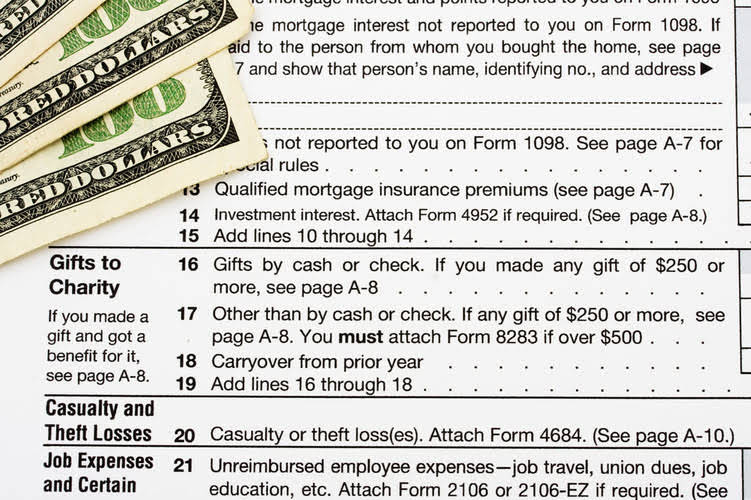EXW terms, however, are often riskier for the seller since they are responsible for the goods until they reach their destination. The designated location in a FOB trade agreement is the point at which ownership is transferred from the seller to the buyer. how is sales tax calculated Ex Works (EXW) and Free on Board (FOB) are international shipping standards known as Incoterms that dictate the responsibilities of buyers and sellers. The Incoterms used determine which parties are required to cover the costs and arrangements related to the shipping of goods.
- Understanding the terminology and understanding when you’re accepting liability and ownership, is imperative.
- This can be particularly beneficial if the goods are fragile or expensive, as the seller is typically more experienced in handling and transporting them.
- The FOB designation defines the party accountable for a shipment from the originating port to the designated port.
- These terms impact when ownership transfers, who pays for transportation, and who bears the risks during transit.
- Resolving any issues that arise during transportation can also be time-consuming for the buyer.
F.O.B. Origin or F.O.B. Destination: What Is the Difference?

A shipping point generally refers to the location where goods begin their journey to the final destination. This could be a seller’s loading dock, a shipping port, or an originating port where a freight forwarder consolidates shipments. FOB destination is a shipping term used in international trade and freight logistics. “FOB” stands for “Free On Board,” and “destination” refers to the buyer’s location or destination. In this situation, the billing staff must be aware of the new delivery terms so that it does not bill freight charges to the buyer.
FOB Destination
Free on Board is one of the commonly used shipping terms, which means that the legal title to the goods remains with the Supplier until the goods reach the buyer’s location. As a result, the responsibility for any damage or harm happening to the products while transit remains with the supplier until they reach the buyers. Now assume that a seller quoted $975 FOB destination and the Bookkeeping for Consultants seller loaded the goods onto a common carrier on December 30. Also assume that the goods are on the truck until January 2, when they are unloaded at the buyer’s location. Therefore, the seller should continue to report these goods in its inventory until January 2.

What Does FOB Mean Under Incoterms 2020?

FOB Destination applies when the buyer takes ownership of the goods at the destination location. This means the seller bears all costs and risks until the goods have been delivered to the buyer’s specified location. Consequently, the fob shipping point seller is responsible for any damages or losses that occur during transit.

FOB regulations establish the parties responsible for goods during sea transport and determine the party liable for costs in case of any mishaps. In this article, gain insights into the contrast between FOB shipping point and FOB destination, empowering you to make informed decisions when navigating shipping contracts. Selecting the appropriate FOB term is a strategic decision that impacts cost, risk, and overall efficiency in international shipping. A prevalent misconception is that FOB terms solely determine liability for damages during shipping. While FOB terms establish when ownership and risk transfer, they do not replace insurance agreements or address liability arising from negligence or other factors. Comprehensive shipping contracts should include clear insurance terms to cover potential damages.
- Free on Board is one of the commonly used shipping terms, which means that the legal title to the goods remains with the Supplier until the goods reach the buyer’s location.
- The supplier’s responsibility ends once the electronic devices are handed over to the carrier.
- So, clarity in FOB terms ensures smoother transactions, accurate accounting, and effective management of the international shipping process.
- If the goods are damaged or lost in transit, the seller must file a claim with the carrier or their insurance company.
- In this scheme, the seller pays for the transportation and all extra freight costs until goods reach the buyer.
- That destination is the receiving port, not the final stop or seller’s warehouse in the journey across the country.
- With this option, the seller assumes more risk and responsibility, which can provide buyers with peace of mind.
- The main difference between FOB and CIF lies in the transference of ownership and liability.
- The process for recording transactions under FOB destination slightly differs from that of FOB shipping point.
Choosing FOB (Free On Board) shipping point as the basis for international shipping agreements offers several advantages for both buyers and sellers. FOB Destination may be a good option if the seller is experienced in transporting goods or if the goods are fragile and require special handling. This option can provide buyers with peace of mind, as the seller assumes more risk and responsibility during transportation. Additionally, FOB Destination may be a good option if the buyer is located far from the seller or if they require expedited shipping.
Navigating Incoterms in Global Trade
The critical juncture in any FOB agreement is often the shipping point—whether it’s a loading dock, shipping port, or any originating port. In this comprehensive guide, you’ll find key insights into the nuts and bolts of FOB—from its basic meaning to its various designations like FOB shipping point and FOB destination. You’ll learn about freight prepaid options, when freight collect makes sense, and how these terms affect your bottom line and supply chain. Master the FOB terms, become savvy in international shipping, and take control of your shipping costs and responsibilities.

